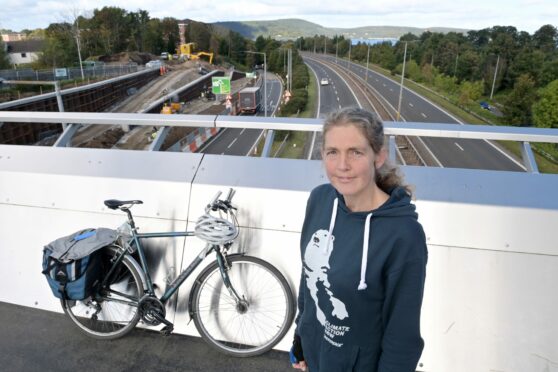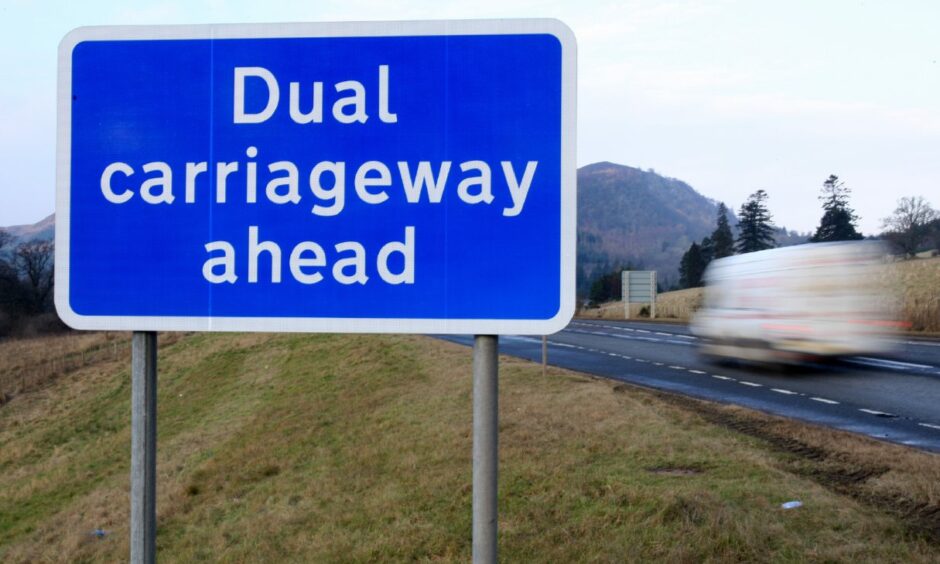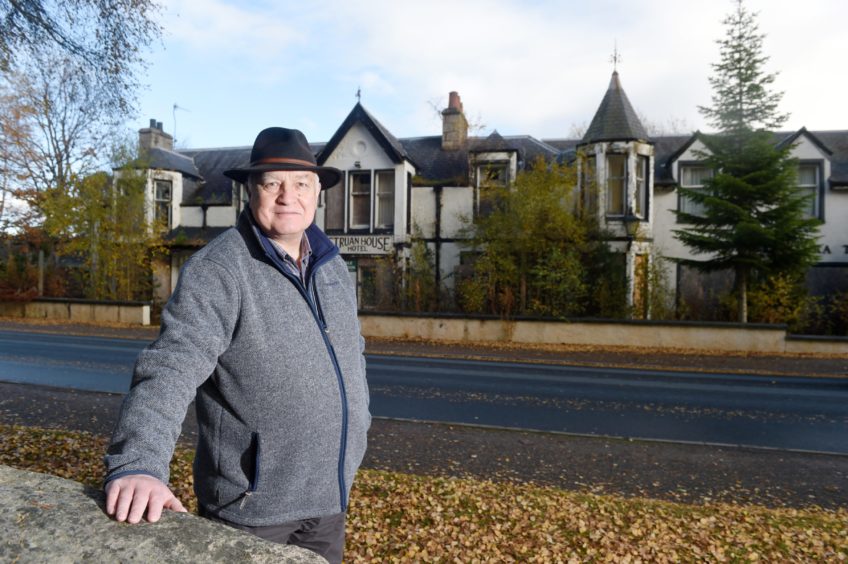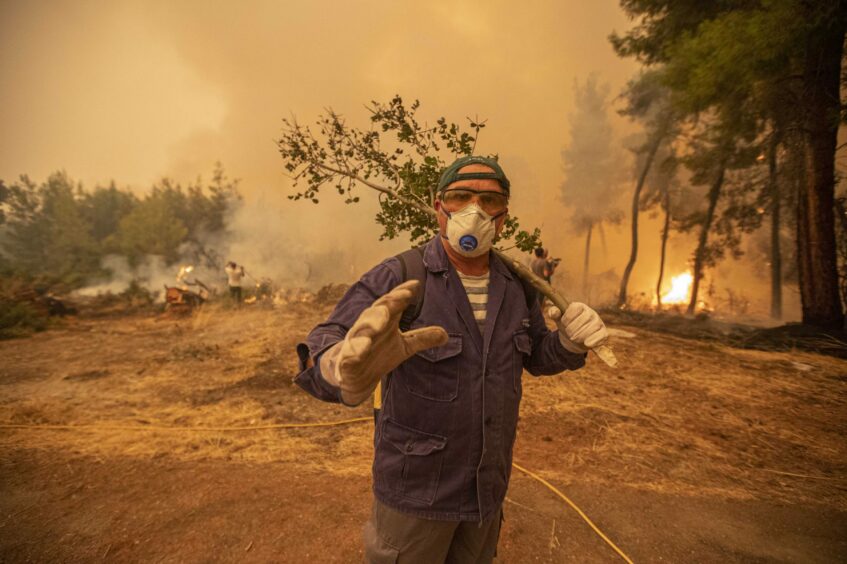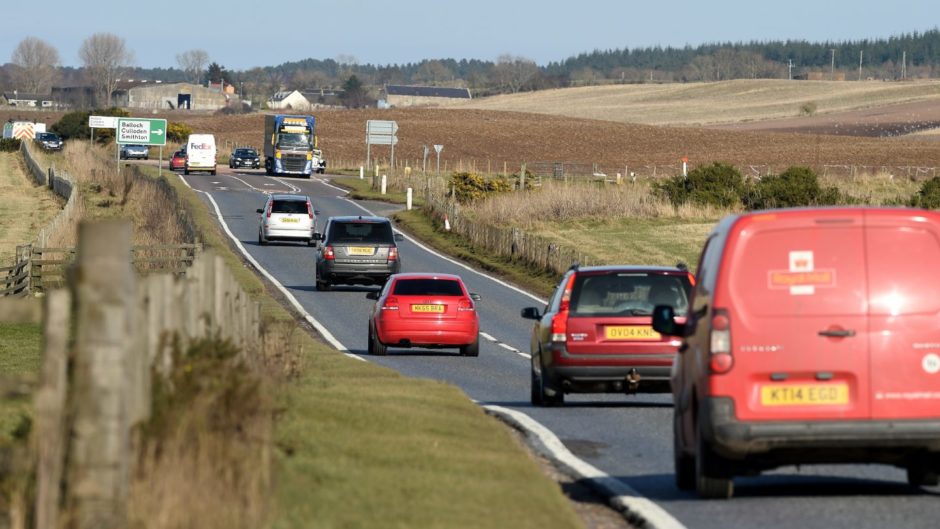A group of Highland doctors is begging the Scottish Government to abandon the A9 and A96 dualling projects to help protect the planet’s future.
Highland Healthcare for Climate Action (HHCA) said the continued focus on road transport is leaving the Earth “in shreds”.
The group, comprised of a cross-section of NHS Highland staff including GPs, surgeons and nurses, is instead asking for Holyrood and Highland Council to concentrate on improving the rail network and active travel.
Dr Kristina High, a spokeswoman for the group, said the council’s support for the dualling projects is “completely incongruous” with its decision to declare a climate emergency in 2019.
She said: “This contributes to the climate crisis. We are not an isolated region, our actions here have a wider impact.
“We would beg the Scottish Government and Highland Council to move their focus away from road transport.
“It is ill-thought out and is leaving our planet in shreds.”
How has Highland Council responded to the group?
The climate action group’s comments follow an appeal to ministers from Highland civic leaders to commit to the dualling project.
Highland Council convener Bill Lobban said the project remains “critical” to making the A9 and A96 safer.
His comments came on the back of a recent report from the Press and Journal which showed there had been 90 deaths on Highland roads between January 2018 and July 2021.
Mr Lobban said: “The Highlands’ economic recovery, prosperity and future is heavily dependent on connectivity.
“From a public safety angle and an economic one, we can’t afford any further delays to the dualling of the A9 or the A96.”
Hitrans chairman Allan Henderson also believes the dualling project should continue.
He said he understood the concerns of campaigners but argued that the north’s roads had been left behind for too long.
He said: “I am all for greening and climate change mitigation. But we can only do that with a level playing field, which includes the continuing dualling of the A9 and A96.”
Has the conversation around transport changed in the wake of global concerns?
Traditionally, there has been little objection to the long-awaited dualling projects.
The usual complaints tended to focus on how long it was taking to come together.
But growing climate worries across the globe could change that.
Back in June, the Welsh government announced it was freezing new road-building projects.
The move was taken as part of its plans to tackle the climate emergency.
There was also a sobering assessment of our planet’s future by the UN’s Intergovernment Panel on Climate Change in August.
The panel’s report concluded that human activity is changing the climate in unprecedented and sometimes irreversible ways, calling the current situation a “code red for humanity”.
‘The climate crisis requires us to shift our priorities’
The HHCA is not the only group to have raised concerns about the A9 and A96 dualling projects.
A report from Transform Scotland published in August called for a rethink.
It criticised Scottish ministers for intending to nearly double their spending on new roads over the next decade, despite promises to tackle the climate emergency.
Sustrans, the charity focused on making it easier for people to walk and cycle, has also raised questions.
A spokesman for the group said: “Transport is the largest emitter of greenhouse gas emissions in the UK.
“Private vehicle use, especially car use, make up the bulk of transport emissions.
“Aspiring to achieve a truly greener future and reach net-zero isn’t possible alongside more road building which will drive up demand for car use and carbon emissions.”
Highland MSP Ariane Burgess was one of seven Greens elected to Holyrood in May.
She has given her support to the Highland doctors calling for a change in strategy.
Ms Burgess said: “I echo many of the concerns of these health professionals.
“Highland Council, like other local authorities, needs to recognise that the climate crisis requires us to shift our priorities.
“We need to see a commitment from councils that public transport will reach more communities and provide an affordable alternative to keep the Highlands moving.”
What happens next?
So far, only one of the 11 sections to be dualled as part of the A9 project has been fully completed.
One other section is open to traffic and will be finished this winter after landscaping work is carried out.
The other nine are described by Transport Scotland as “in preparation”.
The pace of work makes it seem unlikely that the A9 project will be finished by its target date of 2025.
The A96 target date for dualling between Inverness and Aberdeen is 2030.
But a review of that project will be carried out by the end of 2022.
A spokesman for Transport Scotland said: “The Scottish Government is committed to improving the A96.
“It will take forward a transport enhancements programme on the corridor that improves connectivity between surrounding towns, tackles congestion and addresses safety and environmental issues.
“The current plan is to fully dual the A96 route between Inverness and Aberdeen.
“However, the Scottish Government has agreed to conduct a transparent, evidence-based review of the programme.
“This is sensible good governance for major investment of this kind.”
